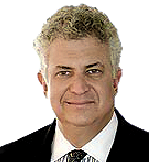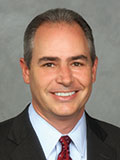
SVP/Group Director,
Signature Bank
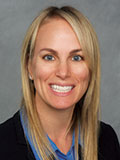
SVP/Underwriting & Portfolio Manager,
Signature Bank
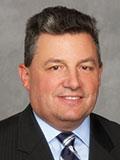
VP/Portfolio Manager,
Signature Bank
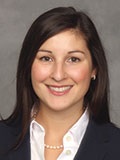
VP/Underwriter,
Signature Bank
ABFJ: Please describe your career and what led to your decision to lead a new ABL Lending division at Signature Bank.
Robert Love: I started my career more than 20 years ago at the Bank of New York Commercial Corp., where I was fortunate to learn from very talented people. While at BNY, I gained invaluable experience working in Operations/Field Exam, Underwriting and Account Management, and based on my knowledge of collateral and underwriting, I was able to round out my skill set at GE Capital, where I began to originate new business, and then at CIT where I was an Origination Team Leader, and also at RBS.
I had several important mentors throughout my career that helped guide me. Ultimately, I always wanted to start up my own group, and Amalgamated Bank afforded me that opportunity. I spent three years at Amalgamated building its ABL division and also heading its cash-flow lending division. While it was a great and successful experience, I wanted a new challenge, and found it at Signature Bank.
Signature Bank is a full-service commercial bank serving the metro-New York area, which, with the support of senior management, was looking to start an ABL division to complement its suite of lending products. The risk team at Signature Bank, led by Michael Merlo, chief credit officer (CCO), understood and supported the addition of the ABL product, which was crucial to me, because in my experience, senior management support and credit competence are key ingredients for the success of a start-up ABL division. One factor that attracted me to Signature Bank was its philosophy of encouraging experienced banking teams to act as a single point of contact to meet all of their clients’ banking needs, so that whenever a client needs assistance, any team member can help them. This eliminates the red tape and bureaucracy that I’ve observed at some of the larger lending institutions. Also, I wanted to be part of a bank that is really committed to growth, and Signature Bank has grown organically over the past 13 years to $22.4 billion in assets, $17.1 billion in deposits and $1.8 billion in capital (as of December 31, 2014).
Wendy Nelson: I began my career in 1992 as a management trainee at the CIT Group, and attended Chemical Bank’s Credit Training Program, which was invaluable and formed my foundation in financial statement analysis. I spent five years at CIT’s equipment finance group, focusing primarily on cash-flow and collateral, and as its regional credit manager, I obtained management experience early in my career. I left CIT to become an underwriter in the ABL group at Heller Financial, and also underwrote participations in large syndicated cash-flow transactions, expanding my underwriting skills to the leveraged cash-flow market.
After spending a few years at Heller, I decided I wanted a more entrepreneurial-oriented working environment and joined AmSouth Capital, the leveraged finance group owned by AmSouth Bank. My primary responsibilities were underwriting and syndicating cash-flow and ABL transactions. I spent eight-and-a-half years at AmSouth and then decided to stay at home a few years with my children. Then Bob Love recruited me at Amalgamated Capital to oversee underwriting and portfolio for both ABL and cash-flow transactions. More recently, it was a great opportunity and stepping stone to land in my new position with Signature Bank, whose approach affords us the ability to thrive. Our group’s expertise is valued and supported by senior management, such that Bob and I have a direct line to the CEO and CCO. The desire for growth and flat organizational structure made this opportunity compelling to me.
Robert Wallace: Simply stated, it’s the team that Bob has assembled that will make us successful. I have been a portfolio manager for nearly 20 years and, during this time, worked at several different organizations, each possessing vastly different management styles. As a start-up, everyone needs to be flexible and handle multiple tasks efficiently, while leaning on each other’s respective expertise, and that is the strength of our ABL Group at Signature Bank. Perhaps most importantly, Bob’s management style supports this approach.
Marissa Bianco Wych: After graduating from college, I wanted to have an immediate impact on a company, and not just be a part of a large process. I figured working at a small or medium-sized shop would provide more opportunities for experience, rather than shadowing someone else and going on coffee runs. I started at CIT in the analyst training program, which placed heavy emphasis on credit training, and I was fortunate enough to work with industry veterans and gain firsthand experience in portfolio management.
I subsequently accepted an opportunity in underwriting at Amalgamated, and thought it was a great way to expand my credit background. Within a few years at Amalgamated, we had successfully proven our ability to create a sustainable platform together, and Signature Bank will enable us to take all those experiences to the next level. A strong balance sheet, a deep understanding of credit, an emphasis on client service and a balanced risk/reward mentality made Signature Bank an easy choice.
ABFJ: Please describe the team you have assembled.
Love: Signature Bank was very supportive of the team I had assembled, and trusted my judgment that Wendy, Bob and Marissa would all be assets to both the group and the bank. I knew that as a start-up, we would all have to work together across all aspects of the business, since you have to wear multiple hats and check your egos at the door. There is no big corner office and no job or task is beneath anyone. There are no office politics or posturing for position, as we are all working together to achieve a common goal of success.
Wendy Nelson is our senior risk person for underwriting and portfolio. Wendy reports directly to Michael Merlo, our CCO. While Wendy’s job is on the front line of the credit decision process for the group, she also gets involved in credit policy, monitoring, work-out, new business and training. Wendy provides a flexible and understanding approach to credit, while maintaining stringent standards for protecting the bank’s assets.
Robert Wallace is our senior portfolio relationship manager. Bob is also responsible for operations, and served as the point person for setting up the operating system. Bob has a great relationship with our clients and is the go-to person for collateral-related questions. Personally, I have known Bob for 23 years, since my first day of work at BNY.
Marissa Bianco Wych is our underwriter. Marissa was also involved in setting up our standard form documents, and does a great job of managing prospect expectations. She does excellent analytical work and knows how to articulate the credit strengths and risks internally, which leads to a quick turnaround. We can also rely on Marissa to do a fair share of direct/indirect new business development.
ABFJ: What led to Signature creating an ABL lending division?
Love: The creation of the ABL group was a natural progression for Signature Bank, since it was looking to ‘round out’ its capabilities for its client base, which is comprised of privately held businesses. The bank started this process by adding a Commercial Real Estate Lending team in late 2007, and more recently it added an Equipment Finance team in March 2012. We were the next logical addition, and the ABL team helps extend the bank’s suite of product offerings. The bank has numerous group directors that service middle- and lower-middle market clients, and the ABL product will help make them even more effective.
ABFJ: What makes Signature Bank special? What is its “culture,” and where do you fit within the bank?
Love: Signature Bank truly has an entrepreneurial and collegial culture. Its focus on hiring only very seasoned and experienced bankers to run its businesses allows them to remove layers of bureaucracy that the mega-banks often have. Additionally, the bank looks to ensure that incentives are consistent from year to year, and it aligns team incentives with the bank’s overall goals. We are all here to grow our business in a controlled manner that balances growth and risk. Senior management is open to suggestions, and expects that the people they hire are the experts in their own lending niches. The open communication lines with senior management have allowed us to quickly establish our “Lending Box,” improving our speed to market.
As group director for the ABL Group, I report directly to the CEO of the bank. While our group acts as its own profit center, it also serves as a product for all the other group directors of the bank. I dedicate a large portion of my time to ensuring that we service the other group directors effectively, as they provide us with a great source of deal flow and intelligence.
Nelson: As I mentioned previously, the flat organizational structure at Signature Bank is unique for a bank with more than $22 billion in assets. The culture allows us to act quickly and responsively for our clients since, instead of transactions getting bottlenecked with credit committees and multiple layers of management, we are either the decision-makers or have direct access to the decision-makers. This allows a quick response for both new business opportunities and transactions with existing clients. Our group is comprised of seasoned ABL professionals, allowing management to rely heavily on our expertise and decision-making skills.
Our ABL group’s credit decisions are based on the Three Cs: cash-flow, collateral and capital structure. We require at least two of the Three Cs. A fourth C — character — is required in every transaction, because we believe character weakness is potentially the biggest risk in any transaction. While we focus on the collateral component first for repayment, we prefer a company that also exhibits cash-flow generation and the ability to cover its fixed charges. We do finance turnarounds, but typically those clients have sufficient collateral and a strong capital structure, either in the form of significant equity or deeply subordinated debt. We will always structure the borrowing base using results from a field exam and inventory appraisal. We can be creative with structures if collateral is identifiable and able to be monitored.
ABFJ: What types of transactions will Signature Bank focus on?
Love: The ABL Group reviews transactions ranging in commitment size from $5 million to $25 million, and has a national footprint with a concentration in the Northeast. We will look at both private and public companies, on both a direct and indirect basis. As we continue to grow and mature, we will start to agent larger transactions and be involved with the syndication of these loans to achieve our desired hold positions, based on the overall credit strength of the borrower and any potential industry concentrations.
ABFJ: How does Signature Bank’s ABL Group find its prospective borrowers? How does it “go to market”?
Love: The bank and the ABL Group are client-oriented, and we are fortunate to be in a position to approach the market across a number of sales channels. Our group directors and the Signature Financial team both provide great sources for internal deal flow and direct customer origination. In addition, we generate deal flow from non-bank intermediaries and the equity sponsor community. We also source indirect transactions through core ABL lending partners, with many of whom we a have prior working relationship. By crossing many channels of origination, we hope to keep the pipeline of transactions very active.
ABFJ: What differentiates Signature Bank from its competitors?
Wych: Signature Bank does a great job of letting industry veterans apply their individual expertise to generate new business. There is no finite checklist or rules written in stone, and we can tailor our product to meet each client’s needs and their business models, while still applying ABL analytics and monitoring.
Wallace: Signature Bank has a top priority of delivering superior client service using banking teams who are committed and engaged. The ABL group is similarly focused, with former contacts staying in touch because they feel like they are still a part of our team.
ABFJ: As you build out your team, what types of talent are you looking for?
Love: As we grow, we are going to need to add staff in a responsible fashion across all areas: origination, underwriting, relationship management and operations, and these will be people that gravitate to the idea of being involved in a start-up and growing a business. Each day we encounter a new challenge as a start-up, and we will need people who are flexible and have problem-solving skills, so we will search for people who can multitask and work independently. These will be confident people that work well in a team setting. I need to feel confident that every new employee will complement the chemistry of the group or the bank; after all, it will be our ability to work as a cohesive team that will result in our success. That’s why this interview covers the whole team, not just myself.
Nelson: I will need underwriters who can quickly look at a transaction and assess the risk. The biggest waste of time for a client would be to spend a lot of time with a lender who cannot deliver a term sheet and then a commitment, so I will look for underwriters who can identify issues quickly, and recommend whether or not to proceed with an underwriting. Strong financial statement analysis skills are a necessity, particularly understanding the impact of the working capital assets on the financials (e.g., the risk of overstating inventory values, and the impact on gross profit and EBITDA). Underwriters also need to be organized and manage relationships with the client and third-party vendors (field examiners, appraisers, attorneys, operations, etc.). Just as important, the underwriter needs to support the decision-makers within the bank, and anticipate their questions and concerns. An effective underwriter should be able to manage his/her workload with minimal support, be a self-starter and also know when to ask for assistance.
ABFJ: What led you to Signature Bank and what makes it a good place to work?
Wallace: When choosing to join Signature Bank and its team, the one thing that really stood out was senior management’s accessibility and supporting a culture in which teams can thrive. This enables people to deliver the best client service possible without distractions.
Wych: The people. When you work with people who want responsible growth and are willing to have a difficult conversation, challenges become opportunities.
ABFJ: How has the ABL lending group at Signature Bank developed so far, and what are your expectations? Where would you like to be in five years?
Love: The group is developing nicely; we have the talent, systems and a strong in-house referral system in place for new business. I expect stable year-over-year growth, based on a steady flow of new business coming from a variety of sources. When you start with zero outstandings, there is only one direction you can go!
Decisions are made in hours or days — not weeks — because the credit personnel are an integral part of the process. We are not going to grow at the expense of sound credit judgment, so we need to source transactions with strong credit fundamentals, and process them quickly to be successful.
In five years, I expect to see a strong ABL franchise within Signature Bank, based on a profitable portfolio of ABL deals and happy clients. The bank and the ABL group are relationship-driven, and I want to be part of an organization that provides exemplary customer service to our clients. Loyalty is important, and I believe long-standing relationships with clients are possible in our industry. I hope that the clients we engage now will still be at the bank in five years. If that proves to be the case, then I will know that we are doing a great job servicing our clients’ needs. It is this philosophy that has made Signature Bank successful, and the same philosophy that we expect will make our group a mainstay in the ABL world.
Howard Brod Brownstein is a Certified Turnaround Professional, the president of The Brownstein Corp. and a contributing editor of ABF Journal. He can be reached at [email protected].

